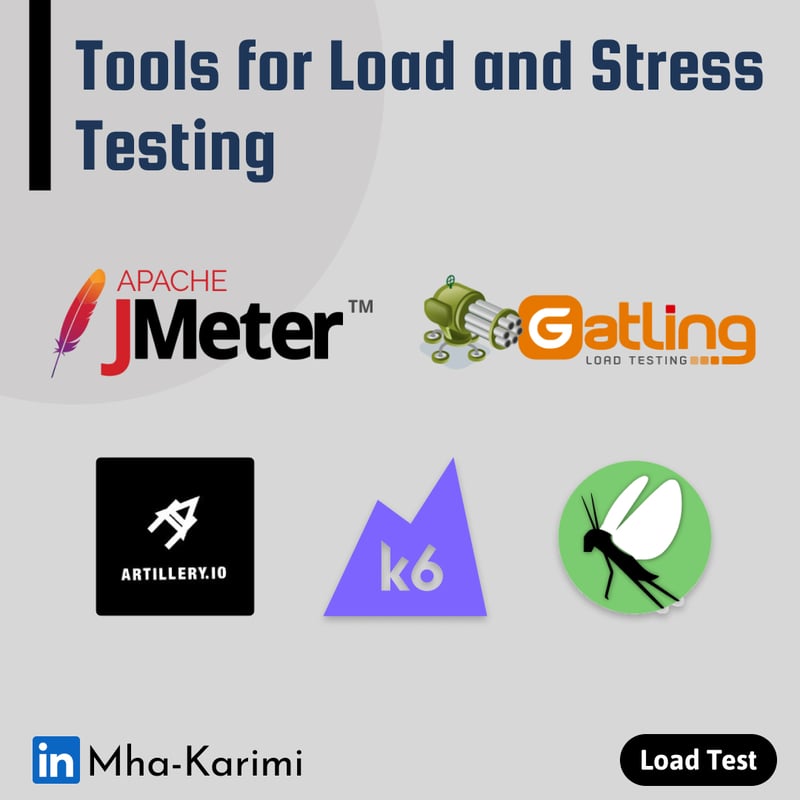Top Tools for Load and Stress Testing

Mohammad Karimi
Posted on February 2, 2024
I think that Writing an article on load and stress testing tools can be a great resource for developers, testers, and anyone involved in ensuring the performance and scalability of software applications. Here's a more detailed exploration of the mentioned tools to help you:
-
Apache JMeter
- Overview: Apache JMeter is a versatile and widely used open-source tool for performance testing. It allows users to simulate a variety of scenarios and protocols, including HTTP, HTTPS, FTP, SOAP, and more.
-
Features:
- User-friendly GUI for test plan creation.
- Extensive reporting and analysis capabilities.
- Supports distributed testing for scalability.
-
LoadRunner (by Micro Focus):
- Overview: LoadRunner is a comprehensive commercial tool designed for performance testing. It has been a staple in the industry for many years and supports a wide range of protocols.
-
Features:
- Supports protocols such as HTTP, HTTPS, JDBC, and more.
- Scenario-based testing with various load models.
- Advanced reporting and analytics.
-
Gatling:
- Overview: Gatling is an open-source load testing tool that focuses on simplicity and scalability. It is scriptable in Scala and provides real-time reporting.
-
Features:
- Supports HTTP and WebSocket protocols.
- Scenario-based testing with a user-friendly DSL (Domain-Specific Language).
- Distributed testing capabilities.
-
K6:
- Overview: K6 is an open-source load testing tool written in Go. It is known for its ease of use and supports JavaScript-based scripting.
-
Features:
- Simple command-line interface.
- Supports HTTP and WebSocket protocols.
- Can be used for both performance and load testing.
-
Artillery:
- Overview: Artillery is an open-source and extensible load testing tool built on Node.js. It focuses on simplicity and flexibility, allowing users to define testing scenarios using YAML.
-
Features:
- Supports HTTP and WebSocket protocols.
- YAML-based scripting for defining complex scenarios.
- Real-time reporting during test execution.
-
Locust:
- Overview: Locust is an open-source load testing tool written in Python. It emphasizes ease of use and scalability, making it suitable for testing a wide range of applications.
-
Features:
- Scripted in Python, making it accessible for Python developers.
- Supports HTTP and provides a clean web-based UI.
- Distributed testing capabilities.
-
BlazeMeter:
- Overview: BlazeMeter is a commercial load testing service based on Apache JMeter. It offers a cloud-based platform for easily executing and managing performance tests.
-
Features:
- Integrates with Apache JMeter.
- Provides cloud-based load testing services.
- Real-time reporting and analytics.
When selecting a tool, consider factors such as your specific testing requirements, ease of use, scripting capabilities, and reporting features. It's also important to evaluate whether the tool aligns with your technology stack and the type of applications you are testing (web applications, APIs, etc.).

Posted on February 2, 2024
Join Our Newsletter. No Spam, Only the good stuff.
Sign up to receive the latest update from our blog.
